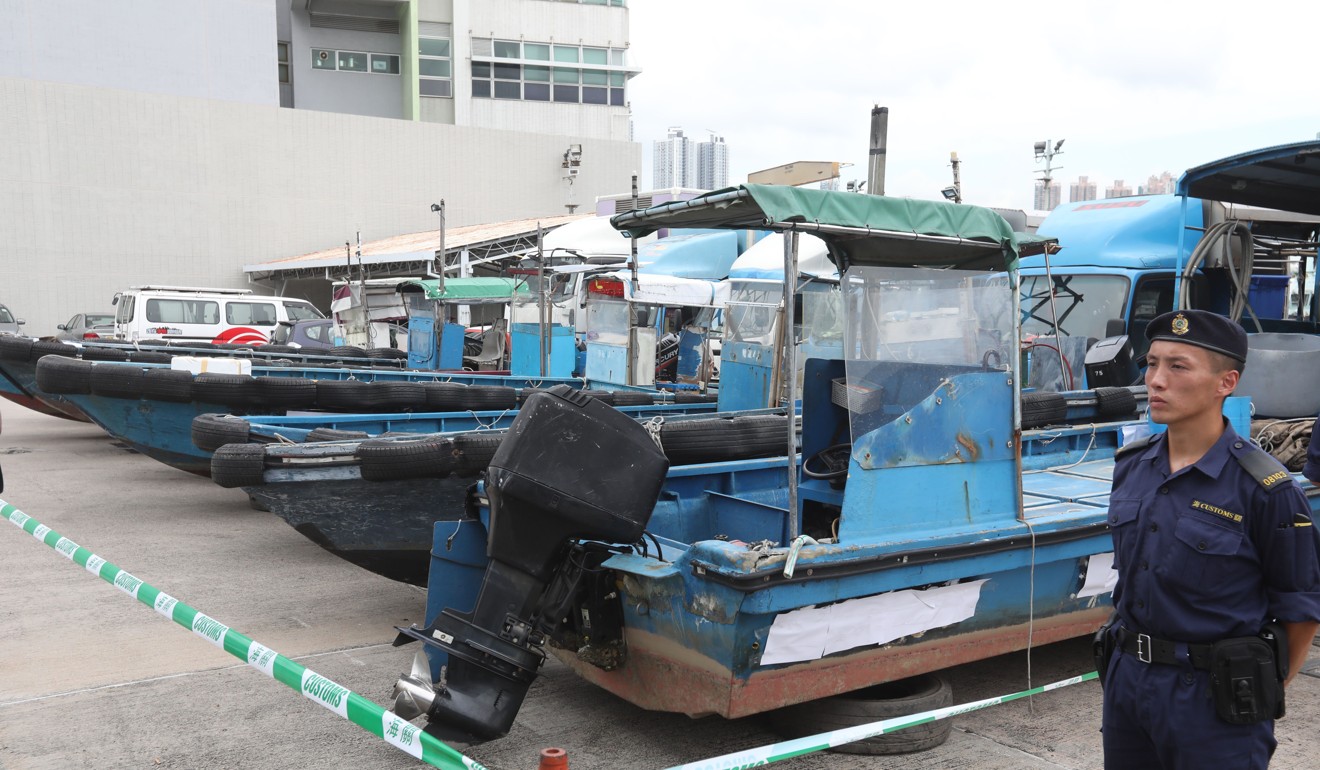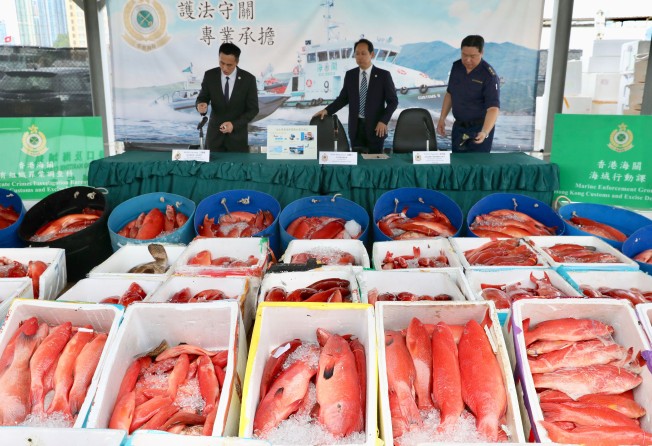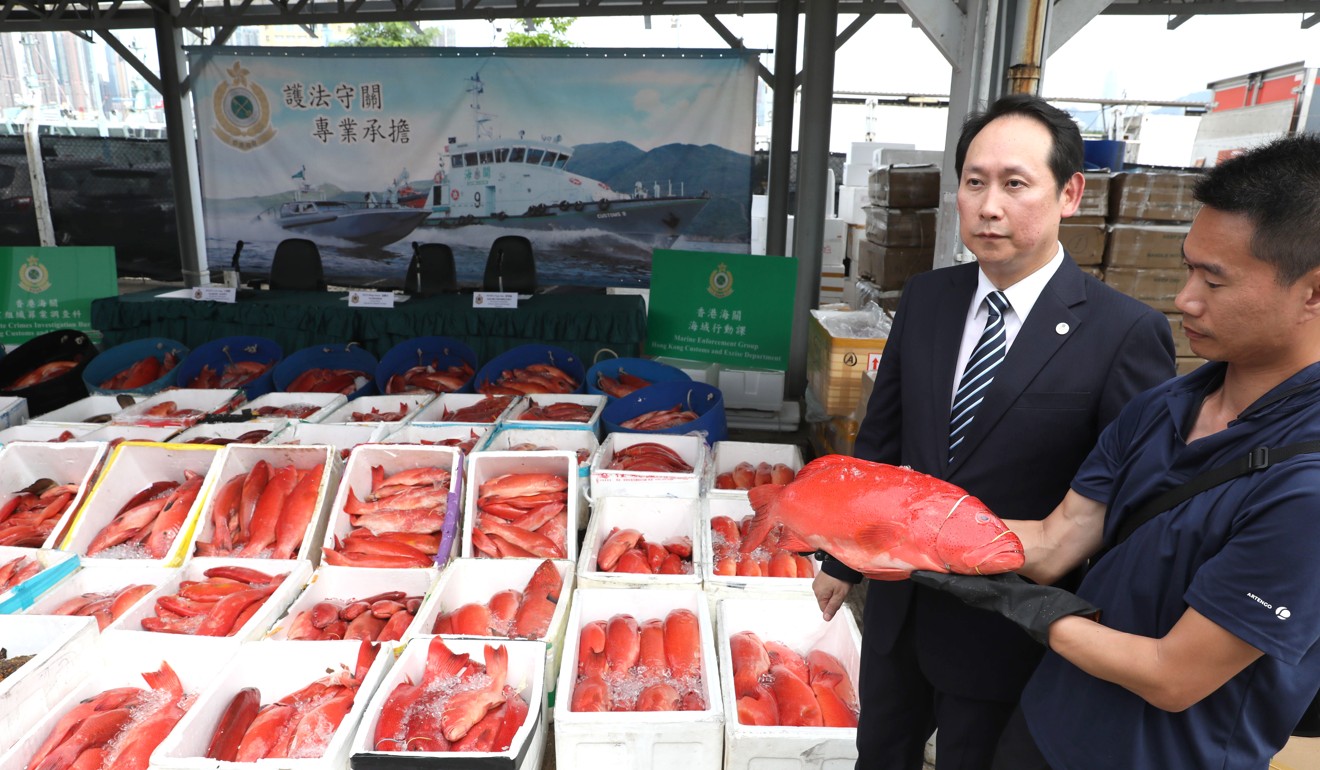
A tax-dodging gang was using speedboats to smuggle tonnes of fish into mainland China. In ‘biggest seizure’ of its kind, Hong Kong customs lands a whopper
- Smugglers use pier close to border to make illegal deliveries of chilled coral groupers to Shenzhen
- Eight men arrested in connection with illicit operation, which customs says was well organised

Hong Kong customs has seized more than five tonnes of coral groupers from a cross-border smuggling ring, in what a senior officer described as the biggest seizure of its kind in the city.
Eight people were arrested for their alleged role in the syndicate, which used speedboats to carry huge quantities of fish into mainland China, seeking to evade hefty taxes, a Hong Kong customs official said on Thursday.
The HK$1 million (US$128,000) haul, imported to the city by air from the Philippines and Indonesia and bound for the Port of Yantian in Shenzhen, was seized at a pier in Sha Tau Kok, near the border, while being loaded onto a speedboat at about 10am on Wednesday.
Customs officers also intercepted seven other speedboats that were scheduled to illegally deliver more than 2,000 large fish to Shenzhen.

Superintendent Wan Hing-chuen, of the Customs and Excise Department’s syndicate crimes investigation bureau, said the haul was the biggest seizure of its kind.
Officers arrested eight local men, aged from 36 to 54, and seized six goods vehicles in the vicinity and at a nearby fish market.
On the same day, customs workers raided the offices of five companies in Kowloon Bay, Mong Kok and Sha Tau Kok and seized a large number of documents.
The syndicate appeared to have bought seafood from Asian countries through the firms, a law enforcement source said.
Officers were still trying to track down the companies’ directors.
Officers from the bureau began investigating the syndicate about a month ago, before placing key players on round-the-clock surveillance.

Boxes of chilled seafood were sent to the city by air and driven from the airport’s cargo terminal to a fish market in Sha Tau Kok before being transported to the nearby pier. The time it took to ship the goods by speedboat from the pier to mainland China was under 10 minutes.
“It took less than three hours to complete the delivery and smuggle seafood into Shenzhen after collecting the goods at the airport’s cargo terminal,” Wan said.
Describing the syndicate as “well organised”, he said that to avoid detection, it ran a one-stop service that included the purchase as well as the delivery across the border.
He said the illegal cross-border delivery was designed to evade mainland Chinese taxes that accounted for about 30 per cent of the price of the goods.
He said the investigation would continue and he did not rule out the possibility of further arrests.
According to customs, the syndicate had been operating for about a month.
“An investigation showed the syndicate carried out such illegal operations two or three times a week,” another source said, adding it could have made more than HK$1 million in a month.
The eight suspects, arrested for attempting to export unmanifested cargo, were released on bail pending further investigation.
In Hong Kong, importing or exporting unmanifested cargo carries a maximum penalty of seven years in jail and a HK$2 million fine.